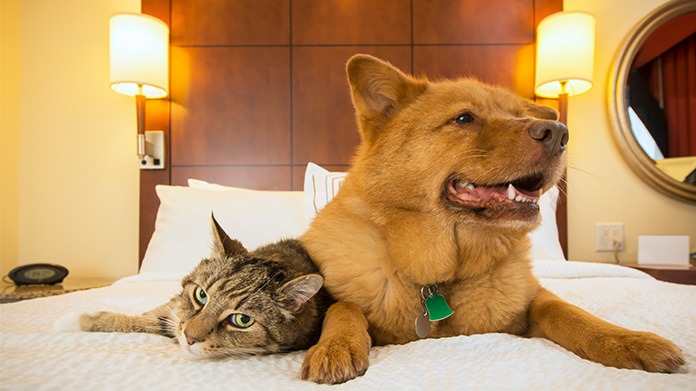Pet hotels, also known as pet resorts, or luxury kennels, are upscale facilities that tend to the needs of their clients’ pets while they’re away. In general, these hotels are run by people who personally enjoy animals and understand their needs. Using this passion, they create unique getaways with a variety of services to pamper your pet.
Does this sound like you? Then maybe starting a pet hotel business is the right move for you? But, you don’t know anything about pet hotels? Don’t worry! Just read on to learn the basics for starting your pet hotel.
Getting Started: Make a Plan
A solid plan is crucial for any entrepreneur. Creating a plan helps you map out the specifics of your business. In your plan, you need to consider:
- What your startup and ongoing costs will be.
The initial investment for your business will involve costs for:
- Leasing or buying for a location.
- Modifying your space for your business.
- Insurance.
- Equipment.
- Permits.
- Website design.
Ongoing expenses will include rent, insurance, standard facility costs, website maintenance, and marketing.
- Who is your target audience?
The audience you will market to will be pet owners in your geographic location that travel and can afford your fees. Therefore, you must be sure to choose a location with a saturation of pet owners who also have median-to above-average incomes.
- What will you charge customers?
In general, pet hotels charge on a per-day basis with prices ranging from $18 to $28 per animal, depending on the pet’s size and the type of animal. This will be your base pricing, which should include a specific amount of playtime and interaction. You can then charge for additional services, like more playtime or grooming.
- What will you call your business?
Selecting the right name is essential. It should be memorable and easy to spell so that people can find you easily online. It should also connote the impression you want potential clients to have of your business.
Form a Legal Entity
The next step in starting your business is to form a legal entity. Typical business structure types are sole proprietorship, limited liability company (LLC), partnership, and corporation. If you choose an LLC or corporation, you’ll be protected from being personally liable if your business is sued.
Get the Necessary Permits and Licenses
If you don’t get the correct permits and licenses, you may receive hefty fines, or they could even shut your business down. You also need to find out whether a special permit is needed to operate a pet hotel business. Licensing requirements vary by state, so you’ll need to do your research.
You’ll also need a Certificate of Occupancy (CO) if you purchase or build your location. A CO attests that all zoning laws, building codes, and government regulations have been met.
Distinguish Your Brand
Your brand is a representation of your company. Essentially, it’s what your company stands for and how the public will perceive your business. If you have a strong brand, this will allow you to stand out from your competitors.
Market Your Business
For your continued growth and success, you will need to market your business regularly. To begin with, you can use social media and flyers on online forums or public bulletin boards. Once you’ve built a reputation, you may want to consider partnering with local pet stores and veterinarians. After all, the word of pet experts carries a lot of weight, so if you can get them to recommend you, you’ll be golden.
Keep Your Customers Coming Back
Reputation is everything in the pet hotel business. Therefore, it matters not only how you treat the animals in your care but also their owners. You want to ensure that when a pet returns to your facility, they act excited to be there. This will go a long way with impressing their owners. Additionally, you should think carefully about your pricing and make sure the fees you charge are fair and competitive with other hotels around you. You may also want to consider offering a promotion for returning customers and creating a referral program.

